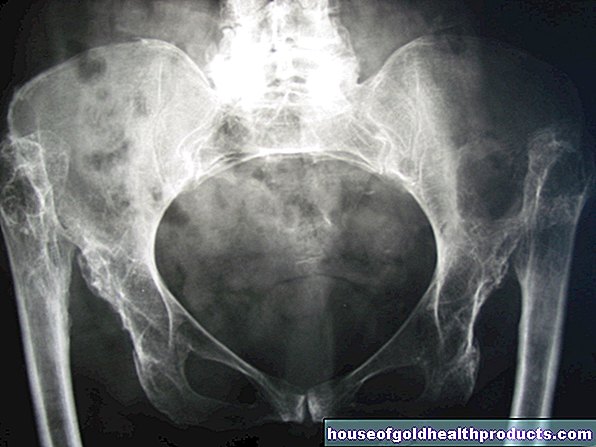Hay fever: Mild winter plagues allergy sufferers
All content is checked by medical journalists.MunichNormally, people with hay fever can take a deep breath in winter. This year, however, the spring-like temperatures are causing problems for allergy sufferers. Because hazel pollen is already flying through the air in mid-January, reports the German Weather Service (DWD). The good news: Overall, the exposure to hazel pollen is likely to be lower in 2014 than in the previous year.
Hay fever in January
The great cold has not happened so far this winter, and wind and rain have also held back. What makes some happy, annoys pollen allergy sufferers. Those affected have been reporting to the German Allergy and Asthma Association since November because they suffer from typical hay fever symptoms. This coincides with the observations made by the DWD in January: the experts observed slight pollen counts for North Rhine-Westphalia, Lower Saxony, Saxony-Anhalt, Saxony, Thuringia's lowlands, Saarland, Palatinate, Nahe and Moselle and Main Franconia. Light to medium pollen counts are already given for the Rhine-Main area, the Upper Rhine and the lower Neckar valley. It is not known whether pollen had already flown in November because there are no data other than reports from those affected.
The pollen count starts early this year - but not unusually early, a spokeswoman for the DWD told Focus Online. Last year, the weather service even reported the hazel pollen flight shortly after Christmas.
Less hazel pollen, more birch pollen
Hazel pollen in particular does not normally reach its maximum until the end of February to mid-March. Those who are specifically allergic to it can still breathe a sigh of relief: Experts assume that there will be less hazel pollen this year than last year. The birch pollen will accumulate for this. "These plants have a natural two-year rhythm," says Karl-Christian Bergmann from the European Foundation for Allergy Research in Berlin. As a result, stronger birch blossoms can be expected again in 2014.
Troubled cold noses
In addition to the mild weather and the actual pollen count, there is another reason why hay fever is currently clogging the noses faster. "Those affected now showed symptoms very quickly because their noses are no longer used to pollen after a month-long break," explains Bergmann. The hay fever can also be aggravated by a recent cold or flu - then the nasal mucous membranes are particularly sensitive.
Source: German Allergy and Asthma Association
German Weather Service
Tags: teenager menopause foot care
.jpg)



























